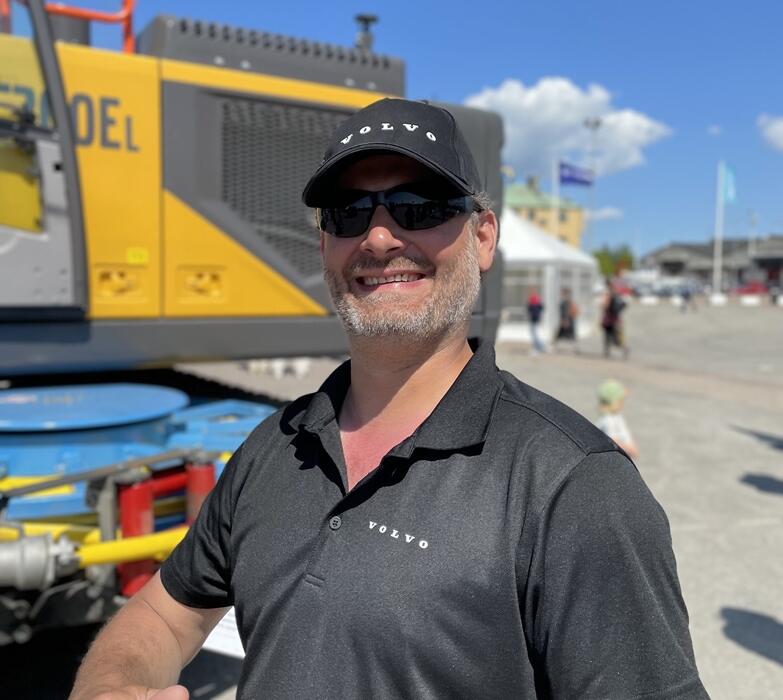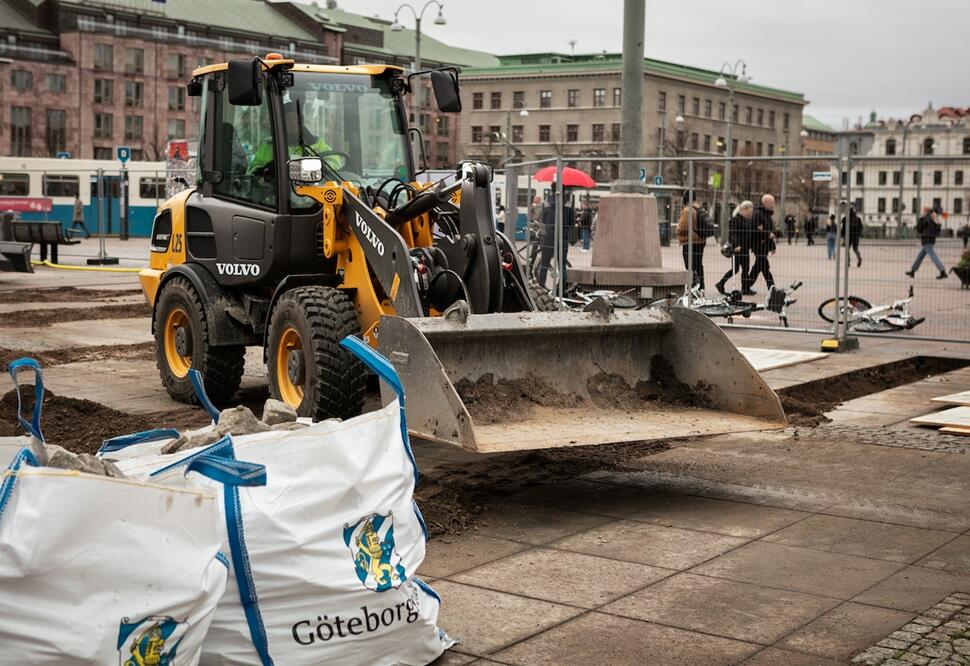Study proves viability of urban electric construction – with big benefits for society

Societies today are transforming towards more sustainable city planning. Fossil-fuel free construction plays a major part in accelerating that shift and making progress towards national and global climate, environment, and air quality goals. The electrification of the construction sector will greatly contribute to a reduction in greenhouse gas emissions, noise pollution, and other harmful emissions, ensuring it plays a central role in sustainable community building.
In parallel with rising demand for emission free construction contracting and a growing market for electric machines, the need for collaboration between all players across the value chain is also increasing to ensure the infrastructure is up to par for the change. This puts new demands on the energy supply and electrical system, among other areas.
Collaboration and competence to accelerate the shift
The goal of the Electric Worksite project was for several players across the supply chain to come together to gain an important understanding of the opportunities and needs when putting to work electric equipment in urban applications. The project, which recently presented its final results, has had a clear focus on the system perspective, testing electric machines, energy storage and charging infrastructure in different urban sites to clarify the varied needs across interconnected technical and organizational systems.
The tests were carried out in real-life construction sites with electric-powered wheeled and crawler excavators, wheel loaders and load carriers, weighing between 3.5-30 tons. Some of which were both battery-powered and others cable-connected. The study concluded that all tests have been successful, with the main learnings being:
- Electric construction machines can perform the same work to the same standard as fossil-fueled variants in urban construction projects.
- Workers in and around electric machines experience several positive effects in the handling of machines and the working environment.
- Like most construction projects in general, the success of electrification is based on foresight, planning, and flexibility.
- New requirements for power supply are solved based on machine type and available electricity - such as electrical cabinets, mobile charging stations, cable-connected machines and potentially also energy storage units.
- End customers need to be made aware of new opportunities and challenges with electric machines, as well as of existing business conditions and contracting requirements towards contractors and subcontractors.
Volvo CE is one of the collaborators which has played a key role in the research project, by project managing the tests and providing electric machines in various sizes and models, as well as technical solutions for charging such as mobile energy storage and cable management systems.

Bobbie Frank, Research leader at Volvo CE, with the grid-connected excavator from Volvo CE. Photo: Electric Worksite
“Electric machines are already available on the market and performing well, but the challenge can often be how to establish a reliable supporting infrastructure. This project confirmed that when all actors in the value chain around a construction site collaborate, both from the public and the private sector, we solve the infrastructure around it. In all tests, regardless of application and location, the electric machines performed as well as, if not better than, equivalent models with combustion engines, but without harmful emissions and disturbing noise”, said Bobbie Frank, research leader at Volvo CE.
Read the final report for the projects here (In Swedish with English summary): Electric Worksite II slutrapport.pdf

The L25 Electric compact excavator working at Drottningtorget in central Gothenburg. Photo: Electric Worksite.
Key Facts:
Project partners: Volvo Construction Equipment, NCC Sweden, Gothenburg City, Chalmers University of Technology, Lindholmen Science Park, Gothenburg Energy, Johanneberg Science Park, Gothenburg City Leasing, RISE Research Institutes of Sweden, ABB Electrification Sweden, Riksbyggen, HSB Gothenburg, Halmstad University
Period: 2021-2023
The project was funded by FFI, Vehicle Strategic Research and Innovation.
Downloads
-
Volvo CE - Study proves viability of urban electric construction (PDF, 6.4MB) -
Study proves viability of urban electric construction - 01 (JPG, 4.3MB) -
Study proves viability of urban electric construction - 02 (JPG, 1.3MB) -
Study proves viability of urban electric construction - 04 (JPG, 2.1MB) -
Study proves viability of urban electric construction - 05 (JPG, 886.2KB) -
Study proves viability of urban electric construction - 06 (JPG, 3.6MB)
FOR FURTHER INFORMATION
Åsa Alström
Head of Strategic Communications
Volvo Construction Equipment
E-mail: asa.alstrom@volvo.com

